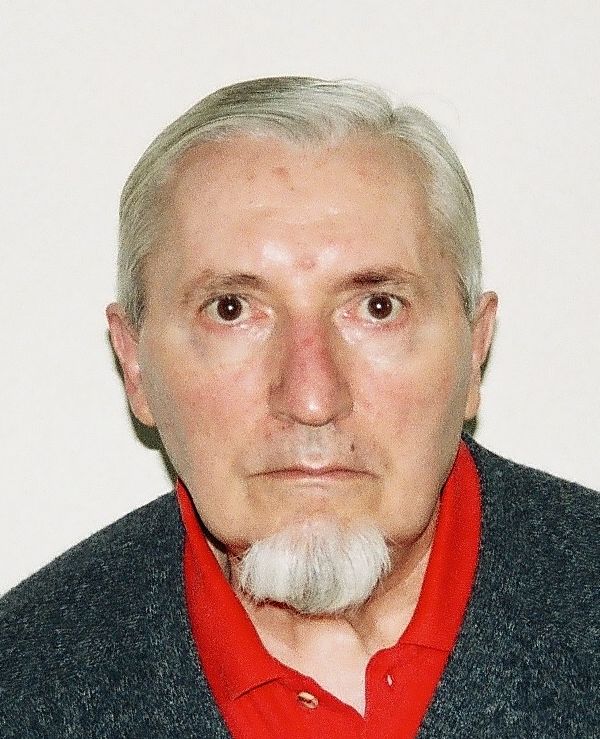Daniel Comboni
Comboni Missionaries
Institutional area
Other links
Newsletter
In Pace Christi
D’Olimpio Riziero
Fr. Riziero D’Olimpio was born on 25 October, 1935, at Petrella Salto (Rieti), the fourth of seven children. Having studied first at the Diocesan Seminary of Rieti, he completed high school and three years of theology at the Pius XI Regional Seminary at Assisi. On 22 September, 1960, he entered the Comboni novitiate in Florence, even though – as he wrote – “everyone in my family is against it but are beginning to accept it”. He took first vows on 9 September, 1962, and was sent to Verona to do the fourth year of theology at the Diocesan Seminary. Ordained priest by Mgr. Giuseppe Carraro on 30 March, 1963, he was then appointed to Gozzano as bursar and mission promoter.
During the summer of 1965, Fr. Riziero went to Florence where some students had arrived from Spain and was asked to teach them Italian. He took the opportunity to learn Spanish and so was appointed to Ecuador where he worked for all of 43 years, except for two periods in Spain (1971-1973 and 1986-1990).
He worked for the first six years in the parish of Muisne, a “sandy bank” on the shores of the Pacific, just a little above sea-level.
In 1968 he ought to have made his perpetual profession but Fr. Riziero asked for and was given permission to renew his vows every year in order, as he himself put it, “to live with greater enthusiasm and fervour the life of the Institute and, at the same time, work with greater commitment and responsibility”.
From 1971 to 1973 he served in Spain. He returned to Ecuador and, from 1973 to 1985 was in charge of catholic education in the Apostolic Vicariate of Esmeraldas. At that time he was a member of the community of La Merced together with Fr. Umberto Rainoldi. He was extremely competent in his work as procurator and builder of primary and secondary schools, in his relations with the state ministers in Quito where he went very often to keep his work going and to obtain the odd favour for the mission. He always took with him some seashells, devotional medals, coconut sweets and other small gifts to give away in order to obtain some “understanding” for what he asked.
In 1986, he went for the second time to Spain. In 1990, he renewed his vows in Italy at the hands of Fr. Lorenzo Gaiga. He had a medical check-up and returned to the province of Ecuador where he stayed until 2004. He was involved in a serious road accident in Quito, together with Fr. Giuseppe Ricchieri, which crushed his breastbone. This marked the beginning of a decline in his health.
He stayed for some more years in the community of El Carmen (Manabi) where, even though he was not able to move very much, as he was also suffering from Parkinson’s disease, “he still felt as strong as a lion”. His last great work, despite much opposition, was to have the ‘Colegio’ built on the small island of Chamanga, on the southern border of Esmeraldas. The actual construction meant that he had many problems to overcome, especially in transporting materials. He devised a hundred and one ways of raising the necessary funds.
At the same time, however, his health was worsening and he needed continual assistance. Because of this, the provincial, Fr. Enea Mauri, in 2001 wrote informing that Fr. Riziero had agreed to return to Italy. In 2004, while he was in Milan, he was appointed to the province of Italy with a letter from Fr. Teresino Serra who told him: “Dear Fr. Riziero, you are present in my heart and in my thoughts. My prayers are but a small sign of the debt of gratitude owed to you by the Church and by the Institute”.
He viewed his illness with hope and confidence, considering it almost like a “companion” during his last years in the mission until he was forced to return to Italy for treatment at the Centre for the Sick in Milan. During the years he spent in Milan he was continually studying his disease, reading about it, writing to researchers and seeking every means possible to slow down its progress. He died in Milan on 2 June, 2012. His solemn funeral was celebrated on 5 June and Fr. Riziero was buried in the town of his birth.
During his life, apart from the special place reserved for St. Daniel Comboni, there was another reserved for another person from Rieti, St. Filippa Mareri (as she was commonly known even though she was still only ‘Blessed’). She was a contemporary of St. Francis of Assisi and, having met St. Francis, founded at Borgo San Pietro, where she was born, a contemplative Franciscan community to which Sr. Assunta, a sister of Fr. Riziero, belongs. Growing up in the shadow of Saint Filippa, who lived a life of poverty and abandonment to God, he joined these elements to the missionary and dynamic strength of St. Daniel Comboni.
Da Mccj Bulletin n. 254 suppl. In Memoriam, gennaio 2013, pp. 16-22.

